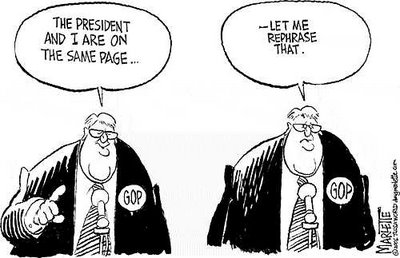101 US Soldiers are dead this month and one mother still weeps
One hundred and one soldiers have been killed this month in Iraq. That number may not seem like a lot to those who support this war, but for myself and others the number signifies a tragedy.
When one soldier dies, a whole community mourns and will so for years to come.
Today I met an extraordinary elderly woman in her early 80’s. She is the sister of one of my housecleaning customers who is 70 and is currently fighting a terminal disease (scholeraderma…in her case her lungs are hardening). My customer was not there because she went to the hospital last night because she had stopped breathing. Betty came by the house to do a load of laundry and to make dinner for her sister’s husband for when he gets home.
It wasn’t too long until her and I started up a conversation. She told me she’s going to miss her sister when she dies (she has less than 6 weeks to live and this is why I’ve been called in to help too) and was concerned for Mary’s husband who is not well himself. I asked her if her husband was alive and she suddenly got very quiet. I felt kind of uncomfortable because I thought that maybe I had asked something too personal after only knowing her for an hour.
She said, “My husband died in the Vietnam war”. After a few seconds of pause, I gave her my condolences and she said, “Everytime I turn on the news today and I hear that a soldier has died in this rotten, stinking Iraq war, I cry for the mothers and the families who have to deal with this type of loss. A death from war is not the same as a death in a car accident. Our children are not in our country when they die and they die without their family near them.”
Betty, whom I had only known for an hour at least, and I cried together this afternoon. She’s right when she says that having a loved one die in a war, even when the family knows it is a possibility, is a tragedy and it’s a tragedy that continues for a lifetime for the family affected.
Betty still longs for her husband and I could see it in her eyes. I asked her how her husband had died. She said he was on an aircraft that had just loaded up with bombs and had just taken off to drop bombs on a village when a huge gust of wind tore the plane apart (apparently the planes back then were made cheaply because they went through so many during the Vietnam war) and it crashed. Betty’s husband and the others who were on that flight did not survive. What still haunts Betty today is that there were no remains of her husband to be buried. She misses him terribly and has spent the last 38 years single and plans to remain that way until she dies.
So, one hundred and one deaths in the month of October 2006 is a huge number to those of us who don’t understand what noble cause the Iraq war is being fought for and those of us who don’t understand what war is good for.
Being with Betty today made me realize that there are thousands of people in our country connected to these soldiers who have sacrificed and they are going through exactly what Betty has gone through all these years. She understands their pain and now so do I.



















This poll, by James Carvill, Stan Greenberg and Ana Iparraguirre. and it is very interesting.
http://democracycorps.com/reports/analyses/Democracy_Corps_October_13_2006_Memo.pdf
It is PDF format, but worth the read.
This is their cover letter:
RE: MELTDOWN
Report on the Special Survey in 49 Republican-Held Seats
We do not often get to write such a report — changes so large over such
a short period that they certainly portend a whole new playing field for the
November election. This survey of 1,200 likely voters was conducted in only
Republican-held seats, yet Democrats are ahead by 4 points overall in the named congressional vote (49 to 45 percent); indeed, they are ahead by 2 points (48 to 46 percent) in the bottom tier of presumably safest seats.
This vote represents a dramatic change in the state of the race over the
last two weeks. The end of the Congress — with the increased pessimism and
anger about Iraq and the Foley scandal and subsequent partisan brawl — has
moved voters to shift their assessments of the parties and their votes. The 1994
election broke at the end; this one just broke. The shift is evident on every
indicator — party, Bush, war, intensity and morale.
The shift this poll shows in the Republican held seats reflects a dramatic
change nationally in the generic congressional ballot. On Monday, Democracy
Corps will release a report that shows that a 5-point swing on average to the
Democrats in the ten media polls conducted in October. The Democratic vote,
stuck at 49 percent for months, suddenly jumped to 53 percent in the last two
weeks.
We highlight these findings this Friday afternoon because Democrats and
progressives need to think radically differently about the 2006 battle — in this
three-week window. In 1994, the race shifted dramatically at the end, but
Democrats have a chance to consolidate gains large enough to affect
congressional control over this decade. That means allocating resources and
finding new resources to lock in the gains, as the Republicans move their much
greater resources up to the new barricades.
In addition, the meltdown was produced by a collapse in confidence in Republicans without a comparable surge for the Democrats. After flat-lining for a year, the Democrats have edged up but their favorability (warm responses) is only 2 points higher than the Republicans. Amidst all the mudslinging, Democrats can consolidate and expand these gains if voters will hear what Democrats want to do with a new majority — work with both parties and the President to take a new direction in Iraq and wage a better war on terrorism, work to lower drug and gas costs, and to achieve energy independence.
Why is this meltdown happening?
• Iraq. The new belief — and by very big number — that the U.S. is losing ground in Iraq, and the thinking that it is making us less secure, has turned voters against the Republicans.
• The President has tried to nationalize the election around national security, but instead, he has nationalized the Iraq war — which is now clearly dominant as a reason for voting.
• Individual Republican incumbents have suddenly lost their incumbent protection and are now fully associated with the Congress that people hate. Drop in incumbent job approvals is the biggest factor opening up the playing field.
• The Congress is seen as a bickering mess that is getting nothing done for people. Disapproval hits new highs.
• Intensity is tilting the playing field: strong disapproval of Bush is double strong approval; those voting Democratic are now 16 points more likely to be enthusiastic about election than Republican voters.
The result is the lowest scores in more than a decade for the Republicans and the Congress; a president in people’s faces who is more unpopular than any president in memory, a likely electorate even more Democratic than the broad electorate; and an across the board shift in the vote across Republican districts.
This meltdown is real but given its timing, an immense opportunity for Democrats to move
strategically to consolidate gains at an unimagined level.
the survey;
http://www.democracycorps.com/reports/surveys/Democracy_Corps_October_10-12_2006_CD_Survey.pdf
the graphs;
http://www.democracycorps.com/reports/analyses/Democracy_Corps_October_13_2006_Graphs.pdf
the teirs;
http://www.democracycorps.com/reports/analyses/Democracy_Corps_October_13_2006_Tiers.pdf